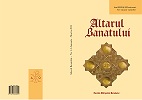OMUL POST-MODERN ÎNTRE CREDINȚĂ ȘI AUTONOMIE FAȚĂ DE DUMNEZEU
THE POSTMODERN MAN BETWEEN FAITH AND AUTONOMY IN FRONT OF GOD
Author(s): Teodor GozobSubject(s): Christian Theology and Religion, Philosophy of Religion
Published by: Mitropolia Banatului
Keywords: God; man; faith; autonomy; immanent; transcendent; postmodern; Christianity; nihilism; paganism; tradition; patristic; atheism;
Summary/Abstract: Postmodern man is in a formal paradigm in his relationship with God because of the acceptance of the autonomy of immanence and the rejection of the transcendent as an eschatological way of life. Modern man, through Nietzsche, declares himself a nihilist, and postmodern man accepts the Divinity separate from humanity. In Eastern Europe, the faith grew after the fall of communism. The tradition of the Orthodox faith has kept alive the conscience of the peoples censored by the utopia of atheism as a state policy. Postmodern man has its origins in the Renaissance, where ancient paganism was revived in Western philosophies.A false perception between faith and science has been created over time. It is necessary, therefore, to return to patristic life in the detriment of current paganism from economically developed countries. Postmodern paganism, which will end in apostasy, a sign of the destruction of human civilization without God, the Creator of the world.
Journal: Altarul Banatului
- Issue Year: XXXII/2021
- Issue No: 4-6
- Page Range: 101-110
- Page Count: 10
- Language: Romanian

